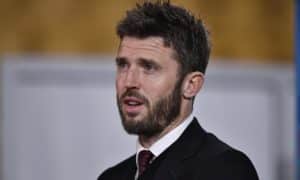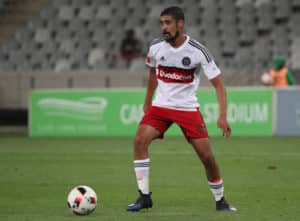There is no place for drugs in the professional game, writes former Bafana Bafana defender David Nyathi in SoccerClub magazine.
I was shocked to hear about the recent high-profile incident at one of our PSL clubs where one of their talented young players failed a drugs test. It is unbelievable that in the modern era, with the high technology used for doping tests, and with the focus on conditioning and fitness, as well as the increased media exposure of top athletes, that a young player would take such a risk.
It’s not the first time we’ve heard of such an incident and it probably won’t be the last, but I am still shocked by the lack of discipline shown by these young players.
I remember that Olympic Champion Michael Phelps was once photographed smoking an illegal ‘cigarette’ at a party, and a few years later he was arrested for drunk driving. At the time he was arguably the highest-profile Olympian after Usain Bolt, but he still thought he could get away with it.
There have been a few other notable cases in world football; who can forget Diego Maradona’s doping saga at the 1994 Fifa World Cup in the USA and Romanian Adrian Mutu testing positive for cocaine while at Chelsea in 2004. Even legendary football coach Pep Guardiola once failed a drugs test for using anabolic steroids. He fought the case for years but there was evidence he used banned substances – intentionally or not.
Personally, I believe there can be no room for excuses when it comes to what a professional soccer player puts into his body. He has a responsibility to himself, to his teammates, to the supporters and to the club that pays his wages. There is a clause in most professional player contracts that says the player will do everything possible to keep himself fit and in the best possible condition to perform at his best for the club.
How would any player think that doing anything illegal was honouring this clause in their contract?
There is also the culture of drinking at some clubs. People turn a blind eye to these after-match activities, but there is no doubt these late-night drinking binges go completely against the code of conduct of professional sportsmen. There is an argument that young professional athletes need to let off steam and get rid of their frustrations and emotions now and then, something I understand, but they must also understand the pressures that come with the job and find better ways to deal with them.
Perhaps there is a role for sports psychologists in South African soccer – experts who can sit and listen to young players’ issues and give them advice on how to deal with them. There are very few sympathetic ears in a team dressing room for anyone with a problem. Players will also never discuss any personal issues with the coaching staff – this is a sign of weakness. So who do they turn to? Their friends. And, sometimes, these are not always the best people to deal with the problems facing a highly paid professional athlete!
– This article first appeared in Issue 73 of SoccerClub magazine





